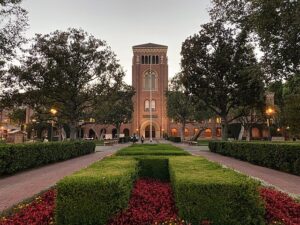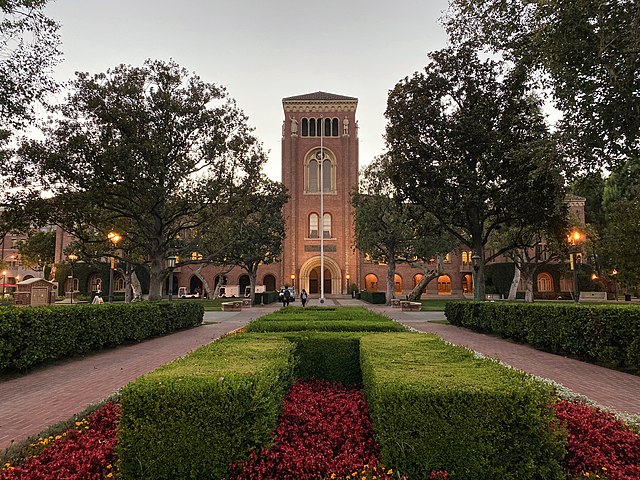
The California legislature is considering Assembly Bill 1780, which would withhold CalGrant funding to universities that favor legacy applicants. Donor and alumni connections present a hard-to-tamp issue for California legislators and universities as legacy admissions flourish at prominent institutions, including the University of Southern California (USC), Stanford and Santa Clara University. The issue of these legacy admissions and preferential treatment cannot be addressed by denying CalGrant money allocated to low-income students already being boxed out of these institutions. This bill only has the potential to worsen the issue and further disadvantage students who cannot afford to buy their admission.
Withholding CalGrant money will not incentivize compliance by these universities and will only create an admissions process that further favors legacy admissions. Clearly, these schools are willing to favor legacy applicants and deprioritize low-income students. Taking away CalGrant money will only encourage California schools not to admit students needing that funding and continue to fill those spaces with legacy admissions. In reality, this legislation does not target the universities, it targets the students and punishes them.
It’s murky as to why this is something universities get to ask students since it has no bearing on a student’s qualifications for entrance. This is simply a way to privilege the privileged further. Legacy admissions are a slick way to get around need-blind admissions policies and allow the university to covertly use an applicant’s ability to pay tuition as a factor. Need-blind policies prohibit using finances as a factor in admissions decisions, while need-aware universities consider the applicant’s ability to pay tuition in admissions. Stanford and USC claim to be need-blind universities but still push legacy admissions. Both schools admitted more than 13% based on connections to alumni and donors in 2022. AB 1780 can’t address this, and these institutions need to learn to put their money where their mouth is and fully uphold the standards of fair need-blind admissions. Taking money from students will not incentivize this.
As of 2022, only 115 American universities were need-blind for American students, while only 7 had need-blind policies for all students, including international students. Compare this to the approximately 3,000 four-year universities in the country, and it becomes obvious that America is the land of buying an education.
Similar legislation, AB 697, was presented in 2019 by Assemblymember Phillip Ting and failed. This bill came on the back of Operation Varsity Blues. This nationwide college admissions scandal elevated the conversation of how wealthy parents were using falsified athletic credentials and test scores to earn their children’s entrance into schools they were not qualified for. Despite the attention on this issue, Ting’s bill failed because many feared, as they do now, that this action would cause collateral damage to students at the guilty universities. Ting’s argument that there was no hard evidence backing up the need for this legislation at the time falls flat even though there is significant evidence of how widespread legacy admissions are because students needing CalGrants should not be paying the price of this crack-down.
It says something about the California legislature and these universities that the only solution they can offer is to punish low-income students already being blocked by legacy admissions. To address this concern, Ting has schools that continue to admit unprecedented numbers of legacy students “have plenty of money to continue to offer those students scholarships, and they should offer the students scholarships.” That’s not a solution — that’s a pipe dream. Not only is he interested in ripping this money out from under so many deserving students, but his only idea is to hope that these schools will financially support them. It would be laughable if it weren’t so tragic and deluded.
Legacy admissions have presented a problem for legislators in terms of management. For colleges, legacy students present an investment and an influx of donations. With legacy students, they can more reliably count on donations from these students’ families to the school for generations. This helps them create a pool of donors rather than a pool of qualified students.
Everyone understands that schools need funding to run everything from classes to research to campus maintenance. The bottom line is that legacy admissions mean undeserving students are buying someone else’s right to be there. With the already glaring inequities in college admissions, legacy admissions are a stab in the back of students who didn’t just work hard but faced undeniably more difficult circumstances than their wealthy and typically white peers. After the Supreme Court decides to ban affirmative action, campus communities face the reality that their study body will be entirely unrepresentative of the world around them.
Furthermore, these students simply do not belong in these spaces. They will struggle to meet the academic standards of an educational institution for which they do not meet the qualifications. When factors unrelated to an applicant’s ability to succeed are considered so predominantly, they are then placed in an environment not designed for them to succeed. For legacy students who gained entrance based on academic standards, their admission is unfortunately tainted. Beyond unfairly disadvantaging low-income students, legacy admissions deny legacies the right to the education they earned and recognition for what they have actually brought to the table. There is no one that this policy is not harming.
Legacy admissions need to be eliminated as a whole, and universities need to act in accordance with need-blind policies. It has been year after year of unfair practices and inequity that cost student after student an opportunity they had every right to. As college decisions begin to come out this spring, know that none were given the consideration or respect they deserved.








